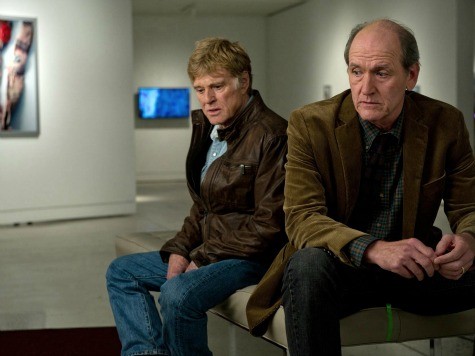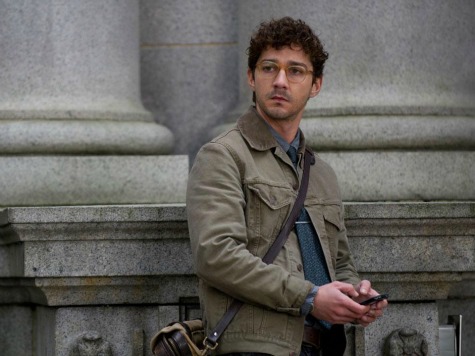
All the pre-release talk surrounding The Company You Keep focused on star/director Robert Redford’s kid glove treatment of ’60s radicals.
The film, based on the book by Neil Gordon, follows a group of former Weather Underground terrorists whose cover is finally blown after decades in hiding.
The film, opening in wider release this weekend, offers a tease of balance regarding these now-graying progressives and never collectively shouts, “we wuz right” regarding their traitorous attempts to end the war. Redford and co. refuse to give a dollop of dignity to journalism, a profession which bends over backwards to bring the star’s ideology to the masses.
The Company You Keep loses intensity at a time when the story’s screws should be tightening, but for a good hour Redford’s latest proves you can mesh liberal ideology with compelling storytelling and a script smarter than your average thriller.
Redford stars as Jim Grant, a kindly lawyer raising his daughter alone after the death of his wife. He’s as generic as he is kind to his kid, but that exterior hides a past dug up by an aggressive newspaper reporter. Ben Shepard (a terrific Shia LaBeouf) has been sniffing around the recent arrest of longtime fugitive Sharon Solarz (Susan Sarandon, chilling in only a few scenes), and he discovered Jim’s connection to the Weather Underground of yore.
Seems Jim used to be known as Nick Sloan, a ’60s radical who along with Sharon took part in a bank robbery where a guard was killed. He’s been hiding his true identity ever since, but Ben’s snooping forces Jim underground once more.
The Company You Keep follows ex-radicals willing to commit murder for their cause, but the screenplay is terrified of taking a stand. We hear tired, Flower-Power era arguments, speeches that sound hopelessly dated and naive, as if 30-odd years hadn’t allowed their adherents to refine their belief system. Yet the main story is crafted in such a way as to dodge tough questions, the kind a bracing thriller would have confronted head on.
The film is equally uneasy about calling out Big Brother. We watch the FBI, given a stoic face by Terrence Howard, pulling plenty of stunts to get their targets, but we’re never sold on the notion that their measures aren’t justified.
The gloves come off whenever Ben’s profession comes into focus. Jim views it with complete disdain, Ben himself bends and breaks the rules to follow his hunches and the story’s overriding arc questions whether telling the truth is really a noble pursuit.
That’s hilarious coming from Redford, a true blue progressive who apparently sees the liberal bias across the mainstream press and harumphs, “not good enough!”

Redford’s radical squad of yore includes Nick Nolte, Julie Christie and Richard Jenkins, and the great Chris Cooper plays Jim’s loyal brother. They’re depicted as mostly loyal and conflicted over the past, but primarily because it’s complicated their current lives to such an extensive degree. Anna Kendrick appears briefly as a plot device, er, possible romantic squeeze for Ben. Yet most of the big names assembled here, likely for the honor of bringing a Redford lecture to life, aren’t given enough to do.
One exception is rising star Brit Marling, whose scenes with LaBeouf make you long for a director’s cut featuring more of their electric banter. Too bad Marling’s arc ends with a ridiculous flourish.
The film dances around the edges of the Weather Underground’s past, almost fearful of upsetting audiences savvy enough to Google the group’s intentions.
“We made mistakes, but we were right,” Sharon says at one point, while Howard’s character warns Ben, “don’t allow yourself to be spun by these people.”
Kendrick’s green FBI official adds, “terrorists justify terrorism–don’t get confused here.”
That’s where the moral upright section of the film starts and essentially stops.
We’d forgive The Company You Keep from echoing its star’s value system had the thriller elements didn’t wane in the final act. A long-awaited confrontation delivers little in the way of emotional sparks or story clarity.
Perhaps Redford’s sense of the common man, something impossible to deny given his lengthy film career, wouldn’t permit him to go “all in” on defending the actions of unrepentant terrorists.

COMMENTS
Please let us know if you're having issues with commenting.